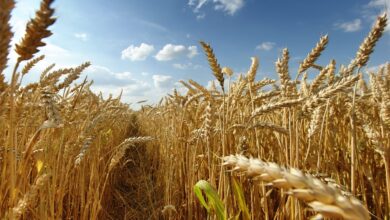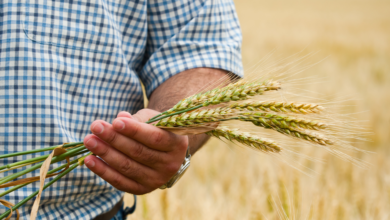The Economic Impact of Plantation Agriculture in Developing Countries
PLANTATION AGRICULTURE
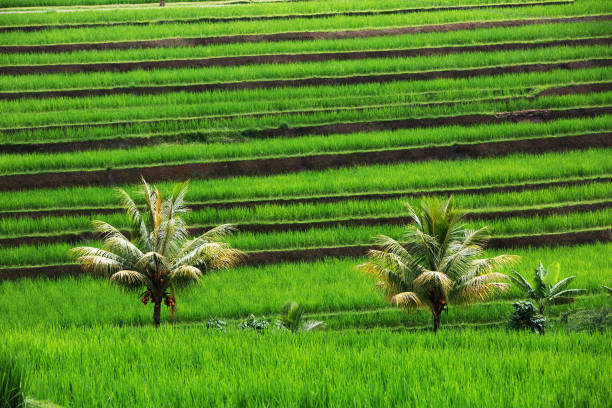
Plantation agriculture has been a key economic activity in many developing countries for centuries. This form of large-scale farming involves the cultivation of a single crop on a vast stretch of land, often owned by a wealthy landowner or corporation. While it has been criticized for its historical ties to colonialism and exploitation, there is no denying the significant economic impact that plantation agriculture has had on these countries. In this blog post, we will explore the various aspects of plantation agriculture and its role in shaping the economies of developing nations.
Understanding Plantation Agriculture: An Overview
Plantation agriculture is a farming practice that involves the cultivation of a single crop on a large scale. It has been a prominent feature in the economies of developing countries for centuries. In this section, we will delve into the fundamental aspects of plantation agriculture and provide an overview of how it operates.
One of the defining characteristics of plantation agriculture is its focus on a single crop. This approach allows for specialization, efficiency, and economies of scale. The most common crops grown on plantations include sugar, coffee, tea, rubber, cocoa, and palm oil. These crops are often in high demand in global markets, which drives the profitability of plantation agriculture.
Plantation agriculture typically requires vast amounts of land to accommodate the large-scale production. This land is often owned by wealthy landowners or corporations, who invest significant capital in establishing and maintaining the plantations. The land is carefully selected based on factors such as soil quality, climate suitability, and proximity to transportation infrastructure.
The cultivation and management of crops in plantation agriculture often involve sophisticated techniques and technologies. Modern plantations utilize advanced irrigation systems, fertilizers, pest control methods, and mechanized harvesting equipment to maximize productivity and yield. The adoption of these technologies has played a crucial role in increasing agricultural productivity and meeting the demands of a growing population.
In many developing countries, plantation agriculture has historically been associated with colonialism and exploitation. The practice often involved the forced labor of enslaved or indentured workers. While these unethical practices are no longer acceptable, the legacy of exploitation remains a dark part of plantation agriculture’s history.
Despite its historical controversies, plantation agriculture continues to be an important economic activity in many developing countries. It generates significant revenue, foreign exchange earnings, and employment opportunities. Plantation agriculture also contributes to national GDP and supports the development of related industries such as processing, packaging, and exporting.
In the next sections of this blog post, we will explore the evolution of plantation agriculture, its economic role and impact, and examine specific case studies that highlight both its successes and challenges. Finally, we will consider the future prospects of plantation agriculture in the global economy. So, let’s dive deeper into this fascinating subject and unravel the intricacies of plantation agriculture in developing nations.

The Evolution of Plantation Agriculture in Developing Countries
Plantation agriculture in developing countries has evolved significantly over time, undergoing various changes that have shaped its practices and impact. Initially, plantation agriculture emerged as a result of colonization, with European powers establishing plantations in their colonies to exploit the resources and generate wealth. This phase of plantation agriculture was marked by forced labor, often involving enslaved individuals who toiled under harsh conditions.
However, as the world moved towards abolishing slavery and promoting human rights, the dynamics of plantation agriculture started to shift. Gradually, the use of forced labor was replaced with indentured labor systems and, eventually, with wage labor. This transition allowed for greater control over working conditions and improved the welfare of workers, although challenges still remain in ensuring fair treatment and decent wages for laborers.
Another significant evolution in plantation agriculture has been the diversification of crops. Initially, plantation agriculture primarily focused on crops like sugar, coffee, and tobacco. However, as the global demand for different commodities changed, plantations started to cultivate a wider range of crops, such as bananas, pineapples, and rubber. This diversification helped reduce the dependence on a single crop and diversified income sources for both plantation owners and the countries they operate in.
Furthermore, technological advancements have played a crucial role in the evolution of plantation agriculture. The introduction of irrigation systems, mechanization, and improved agricultural practices has increased productivity and efficiency. This has allowed developing countries to compete in global markets and meet the growing demand for agricultural products.
The evolution of plantation agriculture in developing countries has not been without its challenges. Issues such as deforestation, environmental degradation, and unequal distribution of wealth persist. However, there have also been positive developments, with efforts being made to promote sustainable farming practices, support local communities, and protect natural resources.
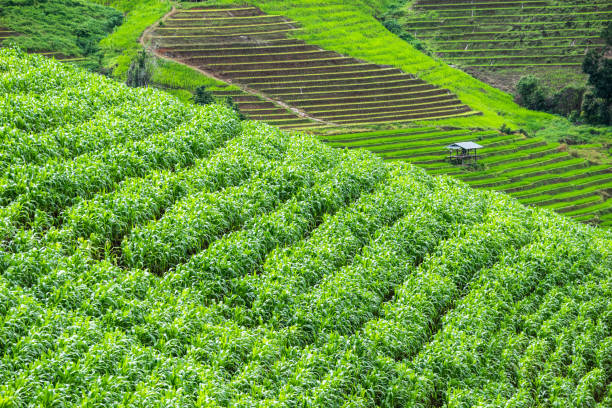
The Economic Role and Impact of Plantation Agriculture
Plantation agriculture plays a crucial economic role in developing countries, contributing significantly to their overall GDP and providing employment opportunities for millions of people. The large-scale cultivation of cash crops on plantations generates substantial revenue and foreign exchange earnings, helping to boost the economic growth of these nations.
One of the primary economic impacts of plantation agriculture is its contribution to export earnings. Developing countries heavily rely on the export of agricultural products from their plantations to generate foreign exchange. Cash crops like coffee, tea, sugar, and cocoa are in high demand globally, and plantations are able to meet these demands through their efficient production methods and economies of scale. The revenue generated from exports not only strengthens the country’s balance of payments but also contributes to the overall development of infrastructure, healthcare, and education.
In addition to export earnings, plantation agriculture also creates employment opportunities, especially in rural areas where job opportunities may be scarce. Plantations require a significant workforce to manage the cultivation, harvesting, and processing of crops. From farm laborers to technicians, supervisors, and managers, plantations provide employment across various skill levels. This helps to alleviate poverty and improve the livelihoods of local communities.
Furthermore, plantation agriculture also supports the development of related industries. The processing, packaging, and exporting of agricultural products create a supply chain that generates additional economic activities. Local processing facilities and factories are often established to transform raw agricultural materials into value-added products, further contributing to economic growth and employment.
However, it is important to acknowledge the challenges and potential negative impacts associated with plantation agriculture. Environmental degradation, such as deforestation and soil erosion, can occur as a result of extensive land use. Additionally, unequal distribution of wealth and income disparities can exacerbate social inequalities and hinder inclusive growth. It is crucial for governments and stakeholders to address these challenges by promoting sustainable farming practices, investing in education and skills development for workers, and ensuring fair and equitable distribution of benefits from plantation agriculture.
Overall, plantation agriculture plays a vital role in shaping the economies of developing countries. Its contribution to export earnings, employment generation, and related industries cannot be understated. By addressing the challenges and embracing sustainable practices, plantation agriculture can continue to drive economic development while protecting the environment and promoting social welfare.

Case Studies: Successes and Challenges in Plantation Agriculture
Throughout history, plantation agriculture has presented both successes and challenges in developing countries. In this section, we will explore a few case studies that highlight the different aspects of plantation agriculture and its impact on the economy and society.
One notable success story is the tea plantations in Sri Lanka. Tea has been a significant cash crop in the country for over a century, contributing to a substantial portion of its export earnings. The plantation industry has created thousands of employment opportunities, especially for rural communities. It has helped improve livelihoods, provide education and healthcare facilities, and develop infrastructure in these areas. The success of the tea industry has made Sri Lanka one of the largest tea exporters globally and has contributed to its economic growth.
However, there are also challenges associated with plantation agriculture. The palm oil industry in Indonesia and Malaysia has faced criticism for its impact on the environment, particularly deforestation. Large-scale clearing of land for palm oil plantations has led to habitat destruction, loss of biodiversity, and increased greenhouse gas emissions. Additionally, concerns about labor rights and working conditions have been raised, highlighting the need for improved labor standards and fair wages for workers.
Another case study is the coffee plantations in Ethiopia. Ethiopia is known for its high-quality coffee production and has a long history in the coffee industry. The country has successfully leveraged its coffee plantations to stimulate economic growth, increase export earnings, and create employment opportunities. However, challenges remain, such as low productivity, limited access to markets, and price volatility. Efforts are being made to address these challenges through sustainable farming practices, quality improvement, and value chain development.
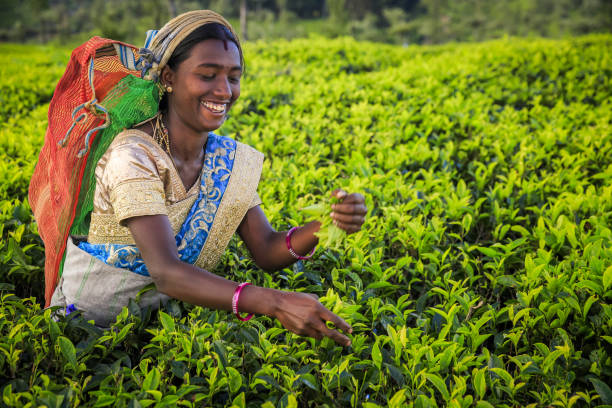
Future Prospects of Plantation Agriculture in the Global Economy
As we look towards the future, it is essential to consider the prospects of plantation agriculture in the global economy. While the practice has faced criticisms and challenges in the past, there are opportunities for sustainable growth and development.
One significant factor shaping the future of plantation agriculture is the increasing demand for agricultural products. As the world’s population continues to grow, so does the need for food, beverages, and other commodities. Plantation agriculture has the potential to meet this demand, thanks to its ability to achieve high yields and economies of scale. By adopting sustainable farming practices and utilizing technological advancements, plantations can contribute to food security and economic stability in developing countries.
Additionally, there is a growing trend towards conscious consumerism and sustainable sourcing. Consumers are becoming more aware of the environmental and social impact of the products they consume. This shift in consumer behavior presents an opportunity for plantations to differentiate themselves by implementing environmentally friendly practices, supporting local communities, and ensuring fair labor standards. By promoting transparency and traceability in their supply chains, plantations can attract environmentally and socially conscious consumers and establish themselves as responsible agricultural producers.
Moreover, the global focus on climate change and environmental conservation is likely to influence the future of plantation agriculture. Climate-smart agriculture practices, such as water management, soil conservation, and biodiversity protection, can help mitigate the impact of climate change and ensure the long-term sustainability of plantations. By adopting these practices and investing in renewable energy sources, plantations can contribute to global efforts to combat climate change and reduce carbon emissions.

In conclusion, the future prospects of plantation agriculture in the global economy are both promising and challenging. While the practice has faced historical controversies and environmental concerns, there are opportunities for sustainable growth and development. By embracing technological advancements, promoting sustainable practices, and meeting the demands of conscious consumers, plantation agriculture can continue to play a significant role in shaping the economies of developing countries while protecting the environment and promoting social welfare. With the right strategies and commitment to responsible farming, plantations can navigate the changing landscape of the global economy and thrive in the years to come.
